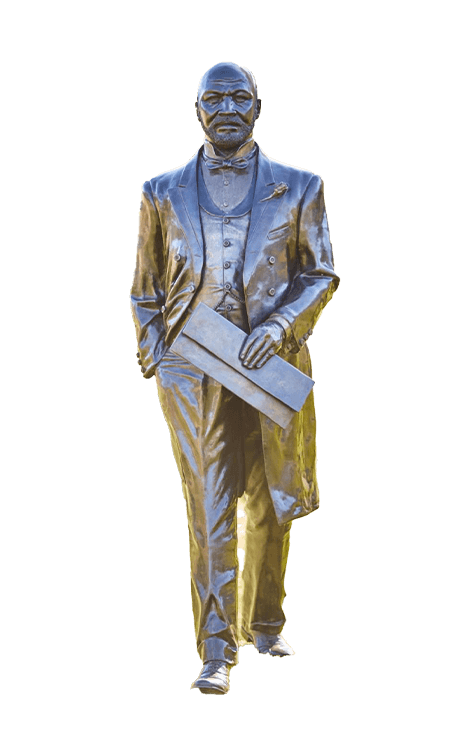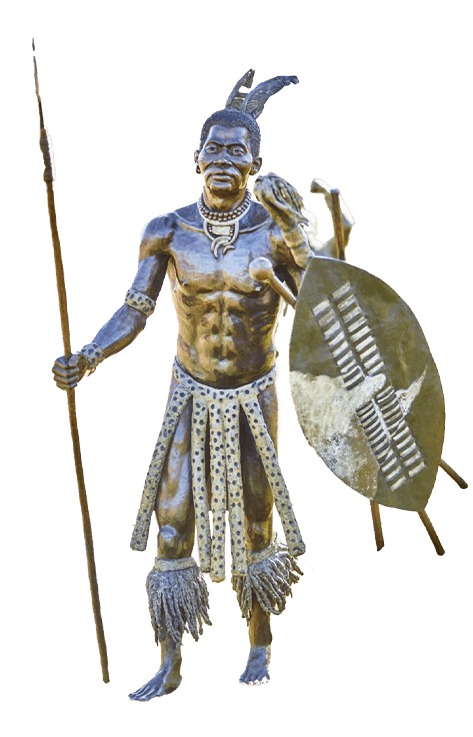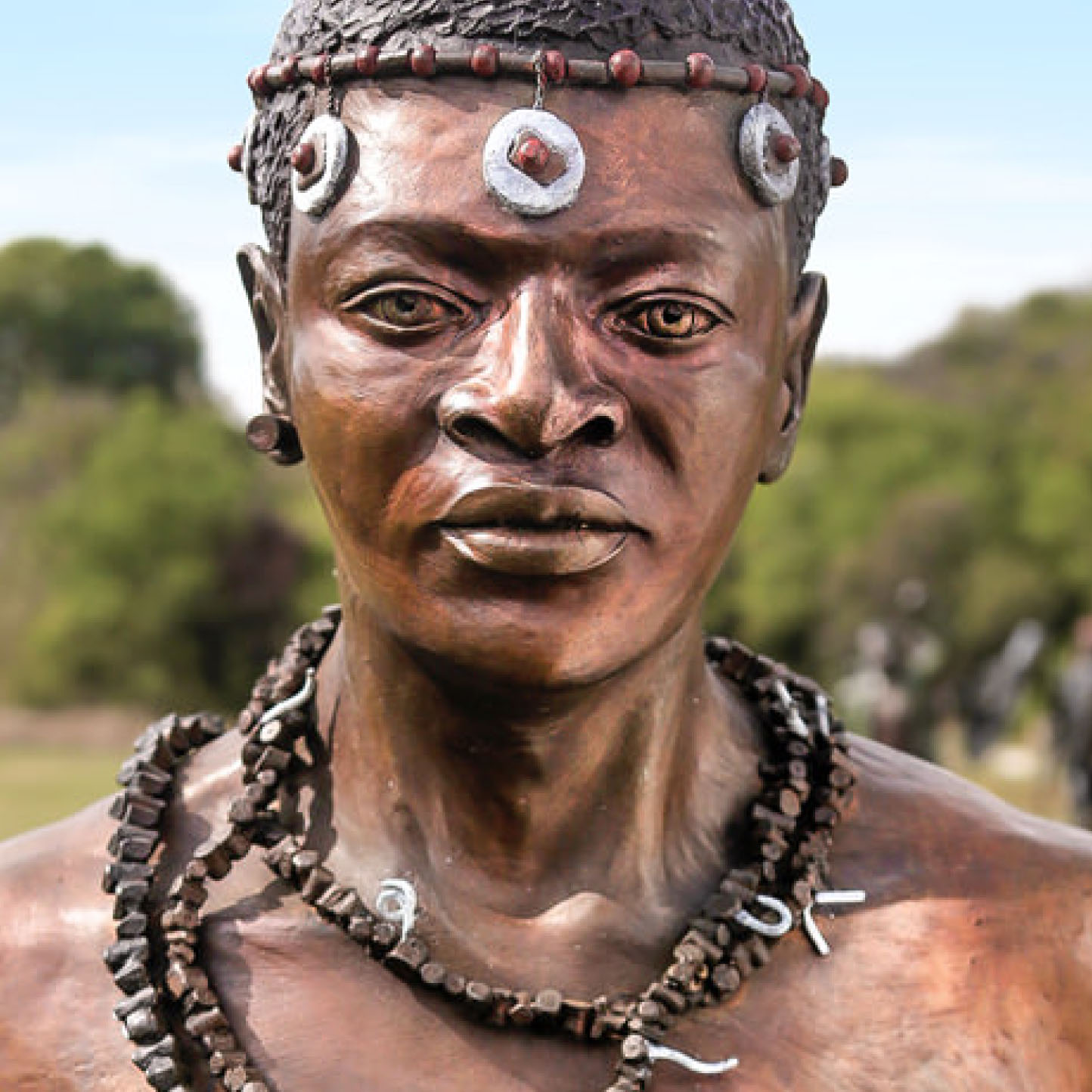
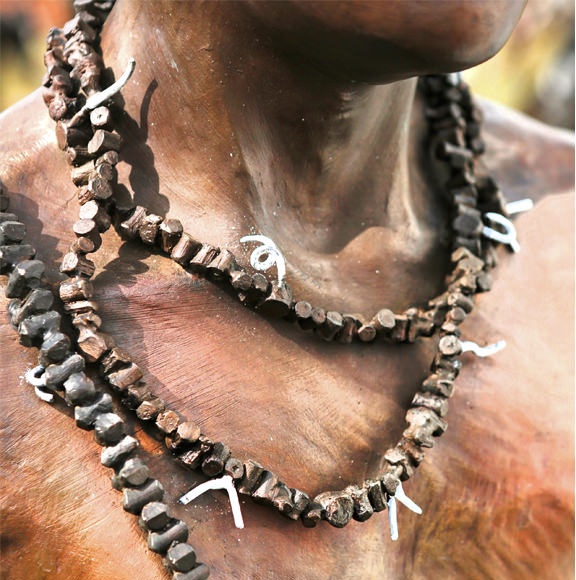
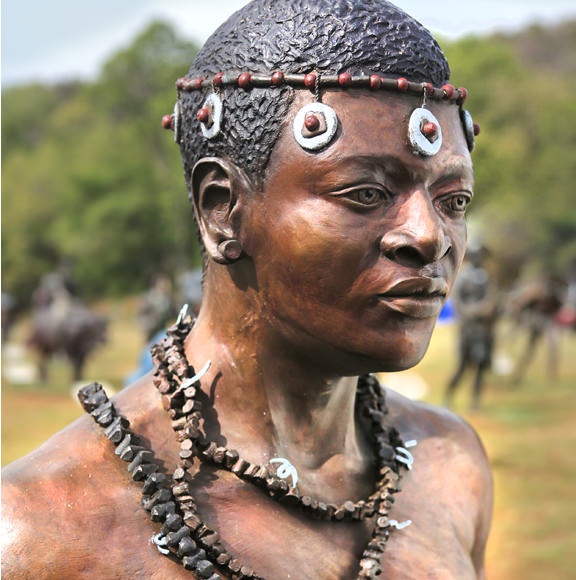
"I am guilty only of being Cetshwayo's son."
King Dinuzulu ka Cetshwayo during the Bhambatha Trial, 1908
Dinuzulu Ka Cetshwayo
1868 – 1913
Head of the Zulu Royal House
Dinuzulu was born to king Cetshwayo and his second wife Novimbi Mzimela in 1868.
When Dinuzulu was eleven years old, the Anglo-Zulu War broke out and led to the defeat of King Cetshwayo by the British in 1879. Cetshwayo was exiled to Cape Town and his kingdom was divided into 13 pro-British chiefdoms. The king was only allowed to return home in 1883, where he died a year later as the last king of an independent Zulu kingdom.
Dinuzulu succeeded his father when he was 15 years old, at a time when the war and the postwar settlement imposed by the British created enormous instability in the region. In an attempt to regain his kingdom, Dinuzulu played off the Boers against British in subsequent succession battles, while at the same time defending his title to the Zulu royal house against newly appointed chiefs who previously had been his father's subordinates.
His efforts ultimately failed when a colonial court exiled him to the island of Saint Helena for 10 years, as a troublemaker.
In 1897 he was allowed to return to a former Zulu kingdom that had been carved up into small magisterial districts following the formal annexation of Zululand in 1887, and was given a minor chiefdom by the British government. Nevertheless, most Zulu still regarded him as their king and considered his return as his restoration as the head of their Royal House.
In 1906 Dinuzulu was linked to the Anti-Poll Tax Rebellion and charged with treason a year later. During a long trial, throughout which he was supported by missionary John Colenso's daughter Harriette, he was cleared of most charges but found guilty of harbouring supporters of the rebellion and sentenced to four years in prison.
A year later, Prime Minister of the new Union of South Africa, Louis Botha, released Dinuzulu and exiled him to a farm in present-day Mpumalanga. He died there, aged 45, in 1913, the year in which the Natives Land Act was passed by the South African government.
Among the few at his deathbed was Mahatma Gandhi who later rose to fame as a leader of India's independence and a worldwide icon of passive resistance. From his deathbed the king made one last request to the British, to be buried with his ancestors on the hills overlooking the Mpembeni River in KwaZulu-Natal in the eMakhosini Valley, the Valley of the Kings.
Despite having never regained his father's kingdom, Dinuzulu nonetheless bequeathed to his son, Solomon, a Zulu kingship that continued to enjoy legitimacy and was more popular than ever.
In 1912, together with seven other recognized monarchs, Dinuzulu kaCetshwayo was named an honorary president of the South African Native National Congress (which became the African National Congress in 1923), a title he accepted in absentia.
